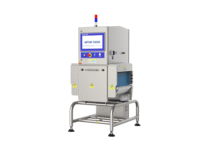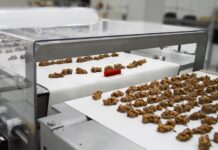The EU via Commission Regulation 201/1156 of 13 July 2021 on food additives has approved an application submitted in February 2018 for the use of an enzymatically produced molecule, Reb M for use in food products in similar concentration to stevia produced from the plant’s leaf.
The process which is known as bioconversion uses genetically modified yeast to emulate the taste of the best tasting rebaudioside molecules in the stevia leaf. The yeast is not present in the final product. The acceptable daily intake of 4 mg per kilo of body weight can also be applied to Reb M produced enzymatically, according to the notification published in the Official Journal of the European Union.
According to the notification’s paragraphs number 8,9, and 10, “The European Food Safety Authority (‘the Authority’) evaluated the safety of the proposed amendment of the specifications of the food additive steviol glycosides (E 960) and adopted its opinion on 24 September 2019 (4). The Authority considered that the enzymatic step process applied for the production of rebaudioside M may result in impurities, different from those that may be present in steviol glycosides (E 960) obtained from water extraction of the leaves of the Stevia rebaudiana followed by recrystallisation. Therefore, the Authority considered that separate specifications for rebaudioside M produced with this process are needed. Furthermore, it concluded that the existing Acceptable Daily Intake (ADI) of 4 mg/kg bw per day can also be applied to rebaudioside M produced via enzyme modification of steviol glycosides. The Authority considered that exposure to rebaudioside M (expressed as steviol equivalent) will not be higher than the exposure to steviol glycosides (E 960) if replaced by rebaudioside M produced via the enzymatic step process. The Authority also concluded that rebaudioside M produced by enzyme modification of steviol glycosides, using UDP-glucosyltransferase and sucrose synthase enzymes produced by the genetically modified yeasts K. phaffii UGT-a and K. phaffii UGT-b, would not be of safety concern for the same proposed uses and at the same use levels as steviol glycosides (E 960).
“Therefore, it is appropriate to authorise the use of rebaudioside M produced via the enzymatic step process as a sweetener in the food categories where steviol glycosides (E 960) are currently authorised.
“Taking into account the ongoing process for the amendment of the International Numbering System for food additives of the Codex Alimentarius, it is appropriate to include the new food additive as ‘E 960c enzymatically produced steviol glycosides’ in Part B of Annex II to Regulation (EC) No 1333/2008 for labelling purposes. In the interest of clarity and coherence, the currently authorised food additive ‘steviol glycosides (E 960)’ should be renamed to ‘steviol glycosides from Stevia (E 960a)’. As those food additives may be regulated combined, a new group for steviol glycosides, including both of them, should be inserted in Part C of Annex II to Regulation (EC) No 1333/2008, and all entries for steviol glycosides (E 960) in Part E of Annex II to that Regulation should be replaced accordingly, while maintaining the currently applicable uses and maximum level for authorised uses and use levels.”
There is widespread interest in food processors in healthier intake of sweeteners and sugars and new and stable approved ingredients are being sought by them on a daily basis.
IndiFoodBev — authentic, impactful and influential
An English-language food and beverage processing and packaging industry B2B platform in print and web, IndiFoodBev is in its third year of publication. It is said that the Indian food and beverage industries represent approximately US$ 900 billion in revenues which implies more than 20% of the country’s GDP. Eliminating the wastage on the farmside can help to deliver more protein to a higher number of the population apart from generating sizable exports. The savings in soil, seeds, water, fertilizer, energy and ultimately food and nutrition could be the most immense contribution that country is poised to make to the moderation of climate change.
To improve your marketing and grow sales to the food and beverage processing and packaging industry, talk to us. Our research and consulting company IppStar [www.ippstar.org] can assess your potential and addressable markets in light of the competition. We can discuss marketing, communication, and sales strategies for market entry and growth.
Suppliers and service providers with a strategy and budget for targeted marketing can discuss using our hybrid print, web, video, and social media channels to create brand recognition linked to market relevance. Our technical writers are ready to meet you and your customers for content.
The second largest producer of fruit and vegetables in the world is continuously expanding processing capacities and delivery systems with appropriate innovative technologies. We cover product and consumer trends, nutrition, processing, research, equipment and packaging from farm to thali. Get our 2025 media kit and recalibrate your role in this dynamic market. Enhance your visibility and relevance to existing markets and turn potential customers into conversations. Ask for a sample copy of our bi-monthly in print or our weekly IndiFoodBev eZine each Wednesday.
For editorial info@ippgroup.in — for advertisement ads1@ippgroup.in and for subscriptions subscription@ippgroup.in
Naresh Khanna – 10 February 2025
Subscribe Now











